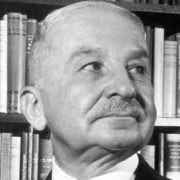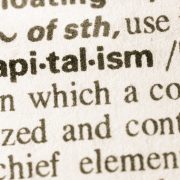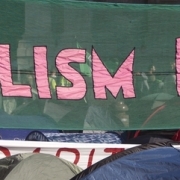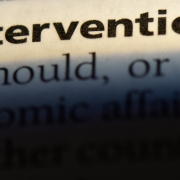Liveblogging F.A. Hayek’s The Road to Serfdom was a journey unlike many others. While it may sound like hyperbole, I can say with full certainty that I learned more from Hayek’s critically acclaimed book than I did from my undergrad economics courses.
Intrigued by the wisdom I gained and determined to keep momentum and excitement for reading economic texts, I made the decision to tackle another economic philosopher: Ludwig von Mises.
Human Action may have been the most commonly chosen work of Mises to jump right into, I decided instead on another one of his classics. As someone who tends to to take a more radical view of classical liberalism than the great F.A. Hayek, I decided that in order to fully understand Mises’ take on the matter, I would have to go to the source. And this is what led me to the decision to tackle Liberalism.
To anyone familiar only with the modern meaning of the term liberalism, they may think it synonymous with “progressive.” Yet, nothing could be farther from the truth. Liberalism has been hijacked in many capacities and distorted to mean something contrary to its origins. 19th century liberalism, the kind proclaimed by philosophers like Adam Smith, Frederic Bastiat, and Ludwig von Mises is about the freedom to live without government constraint.
Today, it is typically associated with those who advocate for government intervention in almost every aspect of their lives. But the time has come to reclaim this term and restore it to its original meaning.
Reclaiming Liberalism
While we have experienced varying degrees throughout history, true liberalism has actually never existed. Mises recognized this in the introduction of his book when he says:
“Only with some exaggeration can one say that the world once lived through a liberal era. Liberalism was never permitted to come to full fruition.”
And yet, even with these lighter versions of liberalism, the world was able to achieve more for humanity than any other construct known to man. Thanks to liberalism, a human was no longer bound to the conditions of his birth. Anyone with a dream, talent, and perseverance was able to pursue his own happiness and create value as he saw fit.
This phenomenon that allowed mankind to be in control of their own fate also allowed men to create in ways that were not thought of before. And because of these market innovations, infant mortality rates decreased, material wealth increased, and education became accessible to more people.
Liberalism broke the chains that had bound mankind to dependency for centuries. As Mises says thanks to the spread of liberal ideas, “The barriers that had in earlier ages separated lords and serfs had fallen.”
But instead of liberalism being associated with self-sufficiency and the ability of human beings to live free from arbitrary state regulation, liberalism has now been associated with those who call for extreme government intervention.
In fact, those who have now adopted the title of “liberal” are anything but. Instead of advocating for a market that organically and spontaneously functions based on demand, these modern “liberals” call for governments to “level the playing field.”
It is for this reason that reading Mises’ Liberalism today is so important. Before the term “liberal” can be properly understood, it needs to be reexamined by studying its roots. Liberalism changed the world, but to understand how it was able to do so, we need to ensure that its rightful definition is restored.













